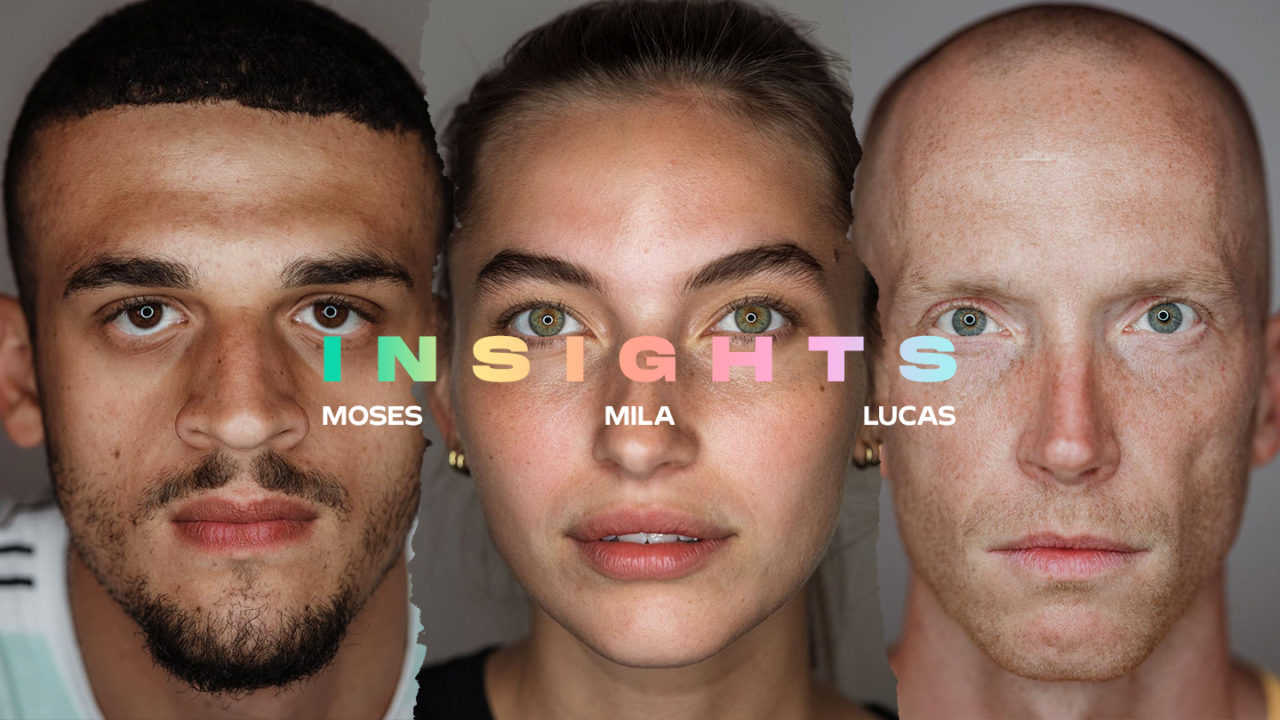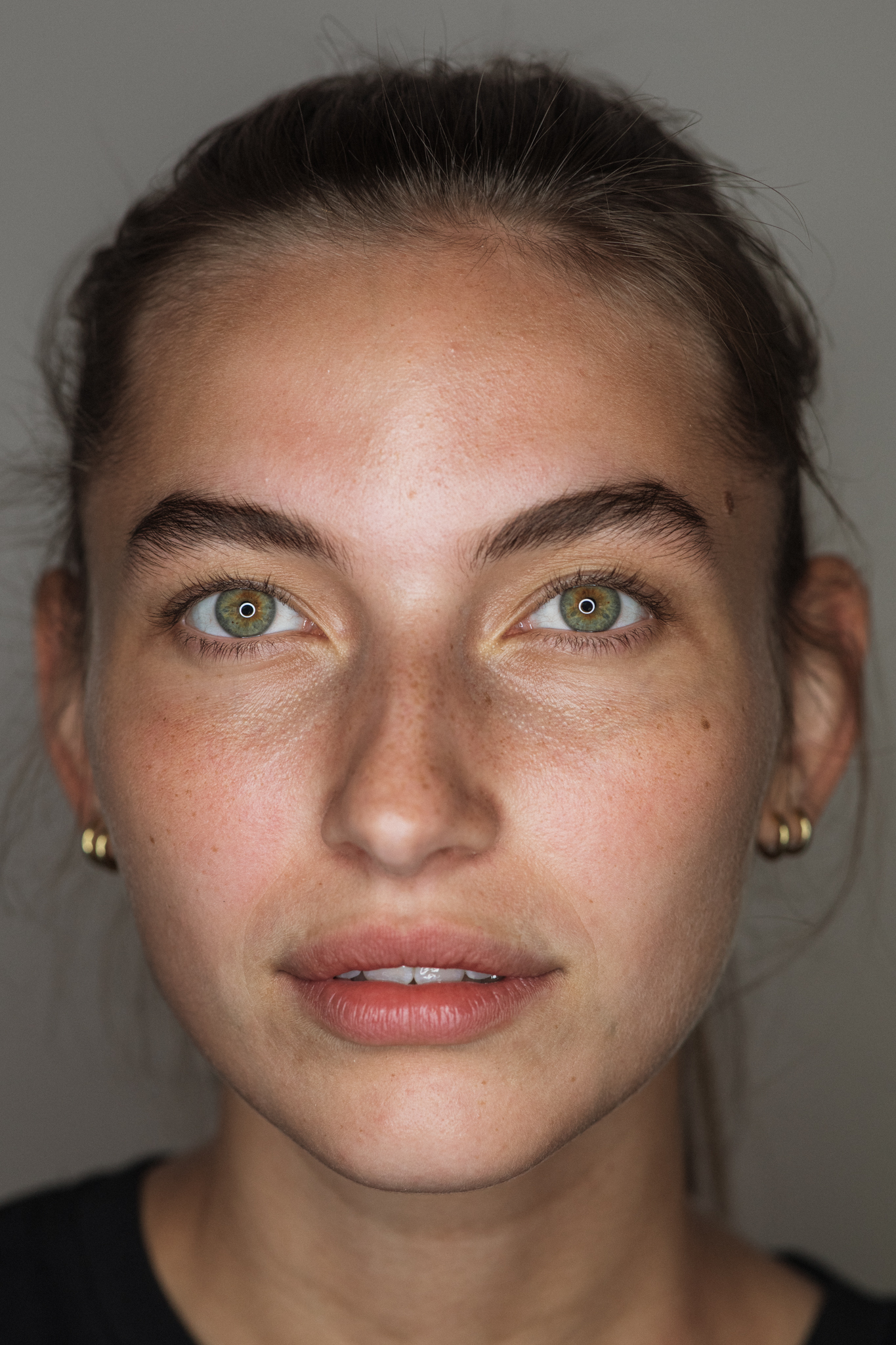The past months have shown us the importance of re-thinking and re-evaluating the way we engage with each other and what roles our individual lives play on a broader scale. Being built on the foundation of community, we have decided to introduce a new project titled ‘Insights’. In an on-going interview series that started with series one, we want to sit down with our members, give them a platform to speak, and listen to their stories. While our goal has always been to bring people together, we feel like it is overdue to also address how our community lives different experiences based on their subjective histories. ‘Insights’ is a first step towards embracing these different life-realities and highlight how they collectively form the Braves. This is the second round of members that we have sat down with to listen to them.
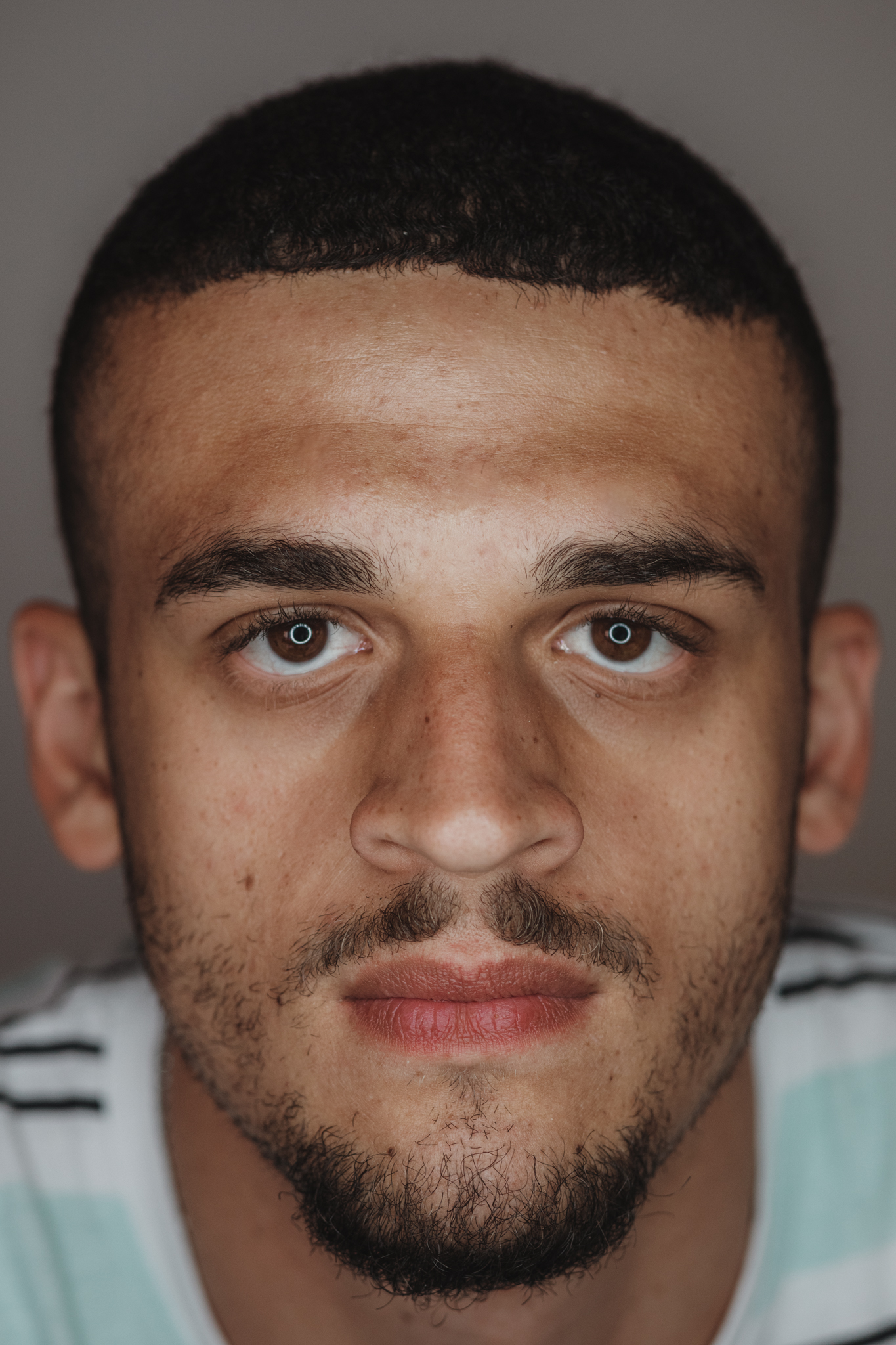
WHO ARE YOU? WHAT IS BERLIN FOR YOU? HOMETOWN? THE CITY OF CHOICE?
Moses: I am Moses, 22 years old, born and raised in Berlin. I currently play basketball for the Eisbären Bremerhaven and study international business administration. Berlin is my home. I love Berlin. Berlin is also the city of my choice. I’m constantly surrounded by different people which makes my own circle of friends so diverse that I automatically have various influences from different cultures. I would almost say that we create our own culture in Berlin, which in turn is known in the rest of Germany. For me, Berlin means creative freedom and above all freedom of mind.
Lucas: I’m Lucas and I’ve been in Berlin for 10 years. A great part of my life revolves around sports and movement. I love being a father. These aspects define me the most at the moment. Berlin is my city of choice. I really cherish what Berlin has to offer.
Mila: I am Mila, 21 years old and I live in Berlin. I study law. Berlin is my hometown. I grew up here and I think I will always return here. Berlin is home.
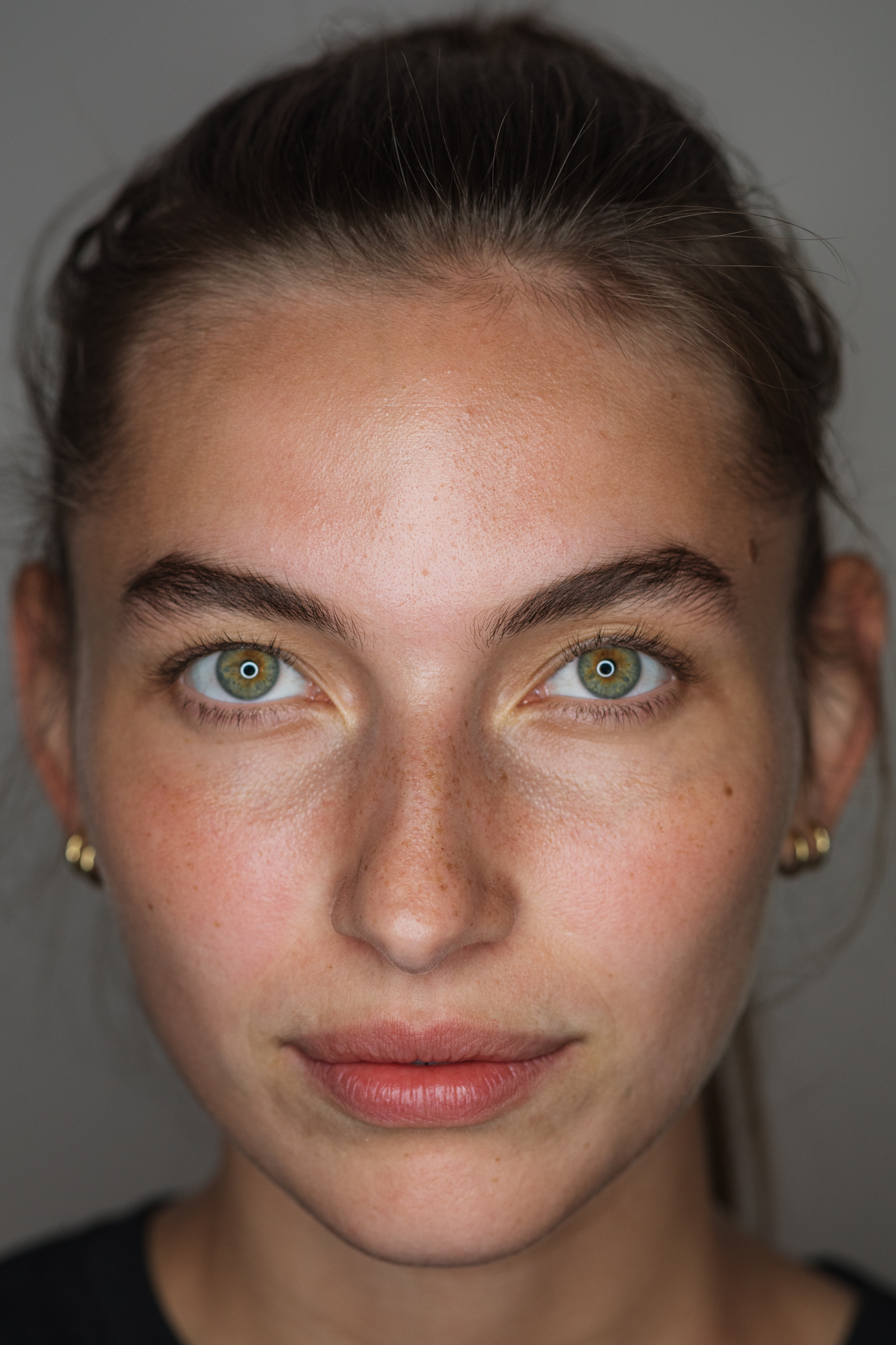
HOW HAS LIVING IN BERLIN IMPACTED YOUR SELF-UNDERSTANDING?
Lucas: I grew up in Austria, and I lived in Munich for 15 years. When I compare these localities to Berlin, the biggest difference that I notice is my increased awareness of open-mindedness. I am sure that in Munich I used to perceive and react differently to anything that strayed from the norm, while today it is part of my worldview.
Mila: As Berlin is very diverse and has so many different facets, I’m also a little more open than I would be, if I had grown up in a village where I probably would have seen more homogenous ways of living – always seeing the same things and the same people. You can get to know so many different things in Berlin and I think that changes you.
Moses: Despite the many national and cultural influences in Berlin, I always understood myself as German. I’m glad I grew up in Berlin. Although racism is obviously present, it is not necessarily all up in your face 24/7. I feel relatively safe in Berlin, but that has to do with my appearance. I’m a 2.06m tall guy, so people probably don’t really dare to say anything. During my childhood, I made racist experiences of course, but when I compare it to the experiences of a friend who grew up in Chemnitz, it’s a whole different level. Racism wasn’t something that impacted my early childhood too much, I wasn’t necessarily warned of potential dangers or anything. I was able to live my life and then my awareness of racism developed later, but it wasn’t necessarily something that determined my life from birth on. That’s why I’m very grateful to have grown up in Berlin because I think that Berlin is very inclusive. There’s a lot of people from different backgrounds and I think especially my generation has made similar experiences in this regard – everyone knows what it feels like to be met with hostility.
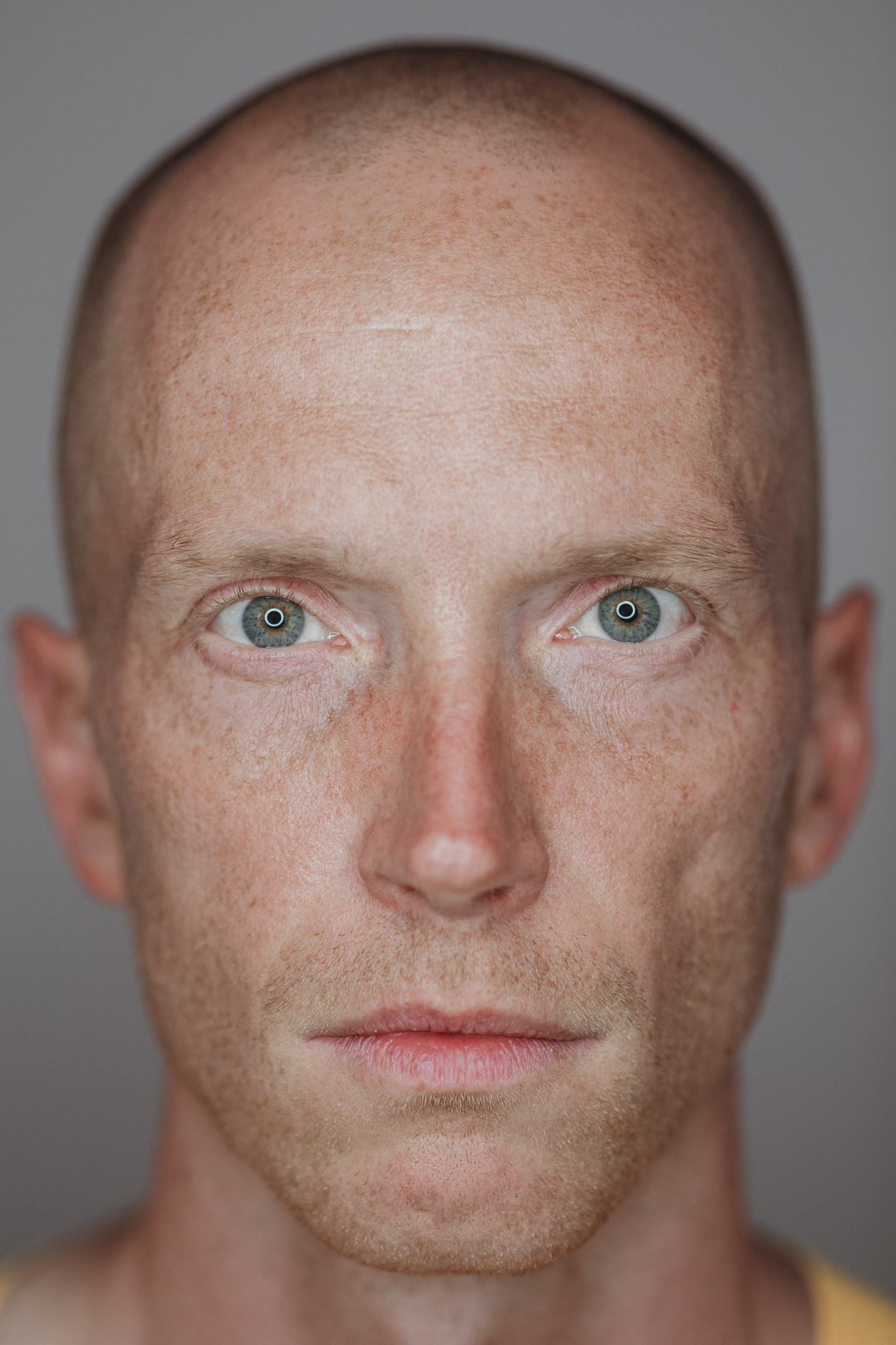
DO YOU PERCEIVE YOURSELF DIFFERENTLY IN VARYING LOCATIONS?
Lucas: I moved to Germany when I was 12, not because it wanted to but because my parents separated and I stayed with my mother. Although Bavaria and Austria are more or less the same for many in Germany, I perceived myself as an Austrian child in Germany, which has to do with the complicated relationship that the two nations have with another. I realized that I would sometimes try to hide my Austrian origin, in a sense of not wanting to be “exposed” as Austrian in certain situations. When surrounded by Austrians I speak in a dialect, while as soon as a German person enters the conversation, I would make use of my “best German”. Accordingly, my self-image has turned out to be a little opportunistic. Seen in this way it is a form of pretense. Nowadays I often wonder what it really means to be myself and why I shift between these different personas. I don’t really feel like an Austrian or a German. I think I’m still looking for my true self.
Mila: How I see and carry myself always depends on the city. I am Danish, my mother is Danish. In Copenhagen I am a completely different person than in Berlin. That also has to do with the language. When I speak Danish I can express myself differently and also describe my feelings differently. I feel much more sensitive when I speak Danish, I find German very logical and clear. Danish makes it easier to describe moods. There are also things in German that I could not say in Danish, that’s why my mother and my best friend know me best, because they speak German and Danish, and therefore understand exactly what I say or mean.
Moses: In elementary school many of my classmates had a Turkish or Arabic background, so I was never the only person with a mixed background. I didn’t feel super different. Then when I started playing basketball, I really started having access to the Black community. And from then on, I was mostly surrounded by people who had made similar experiences to mine. So I didn’t feel like I was the only Black person in the room.
I always had the ability to adapt to my location. The older I get, the more I notice that my pronunciation is different when I am in a predominantly white environment like my father’s family – I speak differently, emphasize things differently. I address my aunts and uncles as “aunt” and “uncle”, which is completely strange to my white German cousins. It makes them laugh because it sounds like the words of a little boy to them. To me it’s a form of respect. These are the kind of incidences that make me notice the cultural differences that exist between my African and my German side. Sometimes I feel a little uncomfortable and have problems connecting.
WHAT’S YOUR DEFINITION OF COMMUNITY?
Mila: Community is a group of people who have at least one common interest or pursue a common goal – it’s almost like a family. It is not just a group, but a group in which you feel comfortable and in which you know that you can always talk to someone and take care of each other.
Lucas: Fellowship. Togetherness. Community revolves around multiple subjective realities and I think a form of togetherness plays an important role. There has to be a common ground and exchange.
Moses: My definition of community is a strong union of people. I am part of various communities in Berlin – I am part of the Black community, I am part of the basketball community, I am part of the Braves community. My definition of community is a solidarity of people with similar interests.
What’s the power of community?
Moses: The solidarity. Creating a safe space together, enjoying one another’s company, having a good time and spreading good vibes.
Mila: How it creates a bond between people who are not necessarily the same, but who have a shared attitude, a shared outlook on life. You can always rely on the community, and have people who are there for you.
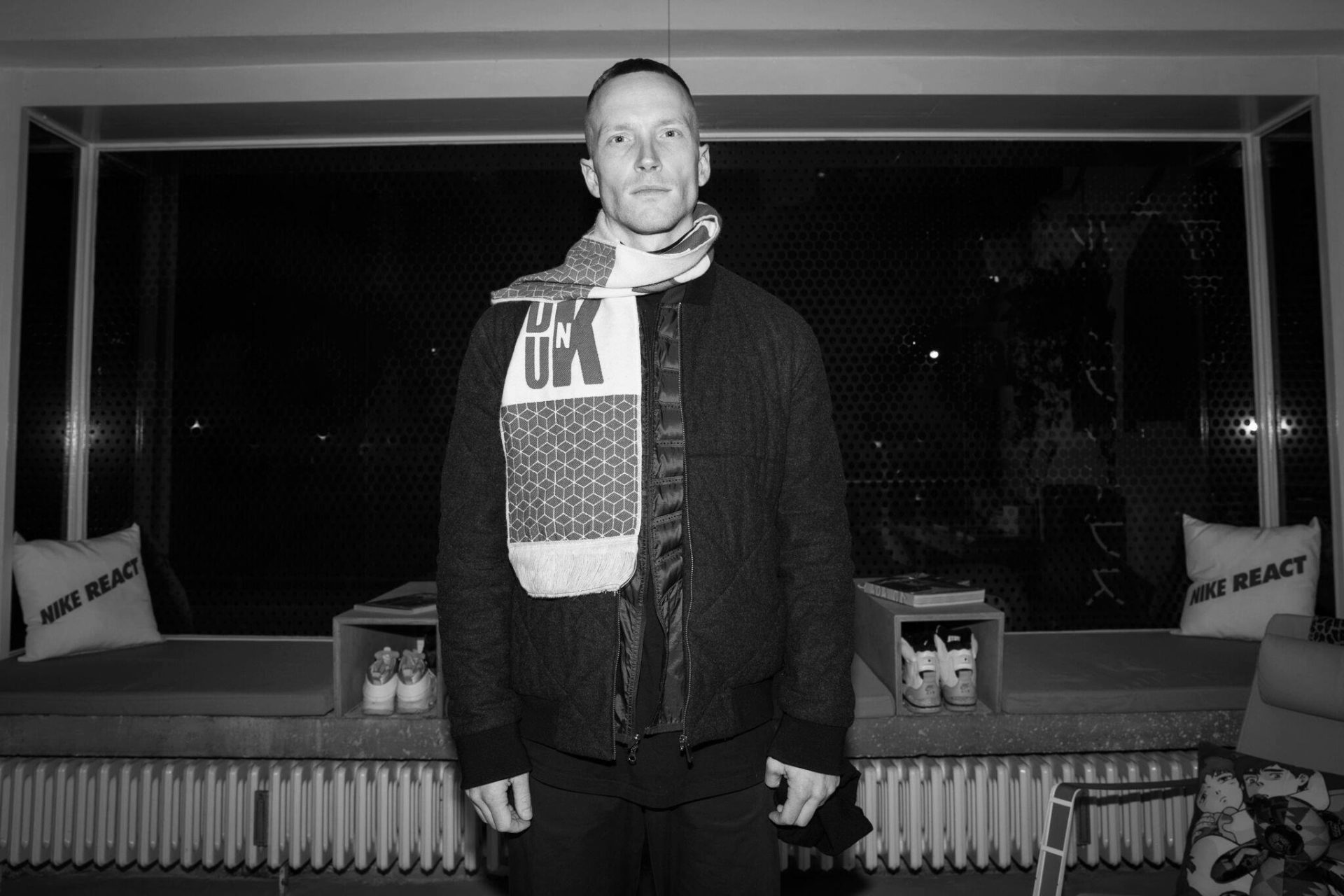
Lucas: It is easier to achieve change collectively – in a group you have more power, more energy, more impact. You can engage people new people, get them on board to achieve something that is even bigger – you can fortify change as a community. You can influence the status quo.
WHAT WOULD YOU LIKE TO BE RECOGNIZED FOR?
Lucas: I would like to be more vocal about many things. I rarely seek confrontation. I would like to change that and would also like people to see that.
Moses: I play basketball, so I am recognized as a basketball player, but I think being a basketball player is relatively meaningless. At the end of the day, it’s a sport and I don’t help anyone but myself and the people that make money off me. I would like to be recognized as someone who is true, who always treats everything honestly and openly, someone who is always there for others. I’m there when you need me, you can count on me and I’m loyal. These are social things that I find important. I want to be less recognized for my success on- or off-court, because unless I use this platform to do something good, it doesn’t really matter what I do, it’s about how I am. I would like to be recognized for these things instead of as a basketball player because this role limits the person I am.
Mila: For someone who stands up for others and uses their voice for others. I think people often think I don’t do anything, but that’s not necessarily the case. When you study law it is often the case that you end up working for some big company, making rich people become even richer. I do not want that. I want to focus on women’s rights and other social injustices.
HOW WOULD YOU LIKE TO USE YOUR VOICE?
Mila: By campaigning for human rights and women’s rights, both in my profession and in my private life. I don’t think there was a particular trigger, but that it evolved over time. I used to read a lot of books about wars and a lot of real stories from people who had to flee. These were, for example, stories of people in Cambodia that are oppressed by the Red Kmher and I always thought to myself that it is unbearable that people in other parts of the world are going through these horrors, while we’re here in Germany acting as if it’s all good.
Lucas: I cannot limit it to one topic alone, but I would like to use my voice more in my social sphere and become more vocal. A lot of times you see or hear something, and yet you remain silent. The other day there was a guy on the other side of the street, apparently he had an argument with his girlfriend and he grabbed her arm, whereupon she said “Let me go!”, and I was on the other side of the street and just kept walking. I could have interfered, but I didn’t. I would like to be more vocal in these situations.
Moses, You have recently initiated a petition to get the U-Bahn station “Onkel-Tom’s Hütte” renamed. How would you like to use your voice?
Moses: The station had bothered me for a long time. I researched the origin of the name, and although “Uncle Tom” is derived from a book, it does not take away the painful story behind it. I thought about how to initiate a renaming and then saw that the renaming of U-Mohrenstraße was initiated through a petition. I then came across a statement by the BVG (Berliner Verkehrsbetriebe) which justified the renaming of the M-straße underground station by claiming that they wanted to distance themselves from all forms of racism. And then I really felt like the timing was right, because if it’s really the BVG’s aim to stop any reproduction of racist notions, then this station must also be renamed. Two days later there was a protest where I ran into Hadnet Tesfai and told her about my project. She then forwarded me a contact from someone who works at change.org. So it all came together – I had a connection, I had the support of my social circle, and the BVG had released this statement. That’s when I realized, that this is the moment to do it. With the help of change.org, I started the petition and in my eyes, it is already a success because I realize that I am not the only one. It wasn’t so much that I thought I was the chosen one to start the petition, it was much more that many things led to it. I am very happy with the development so far, although we are nowhere near the finish line. Nothing has changed yet and no official bodies have contacted me, but I have so much support from my surroundings and also from so many people that I didn’t even know existed. It’s very empowering.
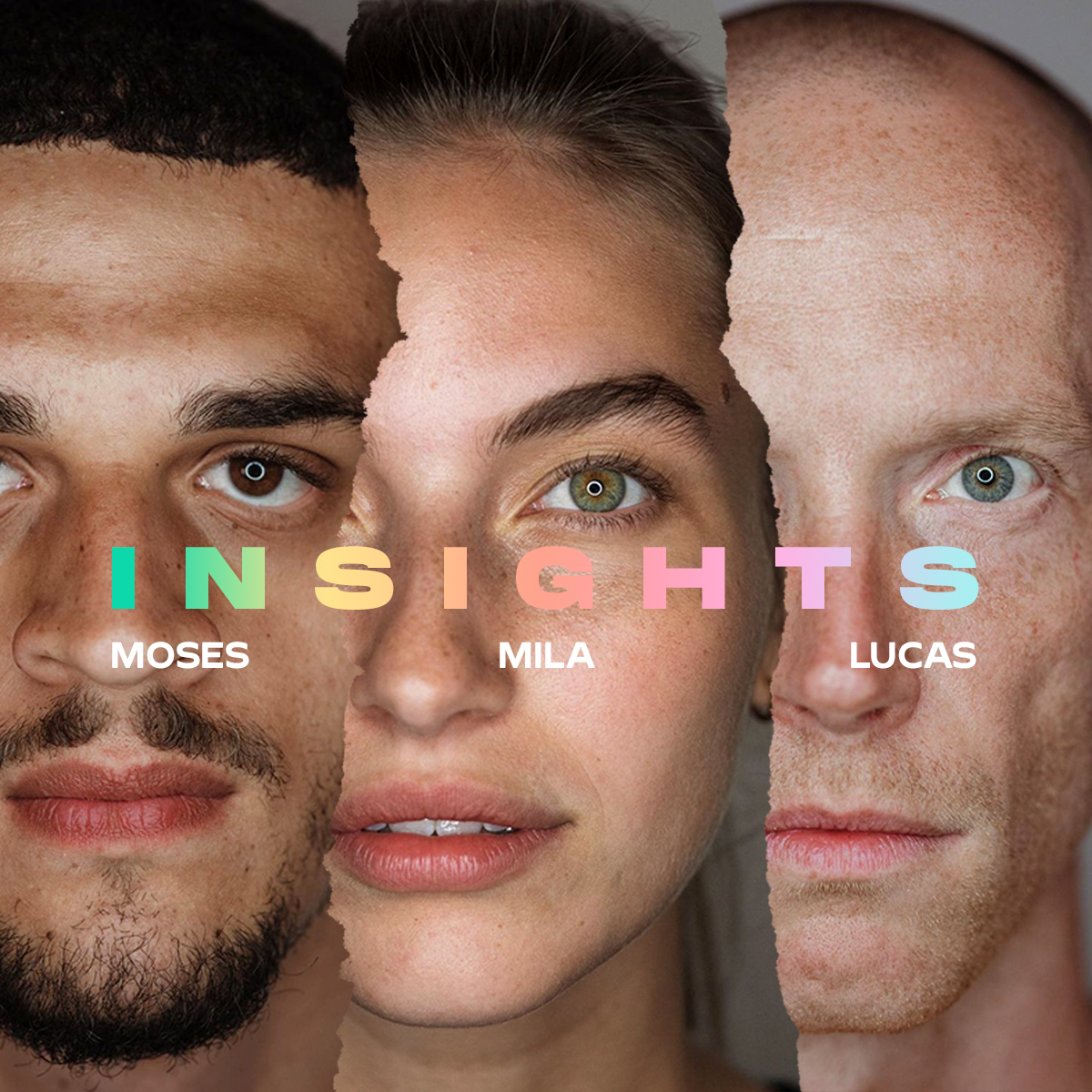
WHOM / WHAT COMMUNITY WOULD YOU LIKE TO UPLIFT?
Lucas: I think it is important to involve the Muslim community more. Especially in Berlin it’s important to create a stronger exchange between different communities and to involve a wide variety of communities
Mila: Right now it’s definitely people of color and the Black community. I believe that there are so many different humanitarian crises and it is important to uplift and support all people who are marginalized.
Moses: I would like to help disadvantaged people, regardless of race, religion and any other forms of marginalization. I would also like to uplift my fellow Black community and the young kids. But I would not like to limit myself to one community only, because if you try to see the bigger picture – the basketball community also needs a lot of uplifting psychologically. In my opinion, basketball players often think too one-dimensionally. When I talk to young kids, or even guys my age, they often think it’s the only thing in the world until reality hits them and they don’t know what to do with their lives. I can’t limit myself to uplifting the Black community exclusively because I’m mixed myself – I am Black and I am white, so I want to do justice to both sides.
